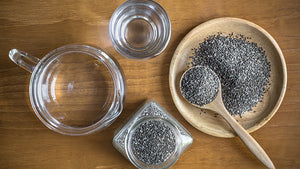Environmental Benefits of Organic Farming

Organic farming can be profitable, and organic food appeals to consumers as both a healthy and ethical choice. Beyond money and ethics, though, organic farming practices result in numerous environmental benefits.
01 Organic Farming Discourages Environmental Exposure to Pesticides and Chemicals
The Organic Trade Association notes that if every farmer in the U.S. converted to organic production, we could eliminate 500 million pounds of persistent and harmful pesticides from entering the environment annually.
Pesticide and chemical use results in many negative environmental issues:
- -Pesticides allow disease resistance to build up in plants, weeds, plant-eating-insects, fungi and bacteria.
- -Pesticides and chemicals sprayed on plants contaminate the soil, water supply, and air. Sometimes these harmful pesticides stick around for decades (maybe longer).
- -Synthetic chemicals also discourage smart farming practices such as cover crops and crop rotation, which in turn, may cause other harmful environmental problems like erosion.
-
02 Organic Farming Builds Healthy Soil
-
To grow healthy food, you must start with healthy soil. If you treat soil with harmful pesticides and chemicals, you may end up with soil that cannot thrive on its own. Natural cultivation practices are far better than chemical soil management.
A large nine-year study by USDA Agricultural Research Service (ARS), shows that organic farming builds up organic soil matter better than conventional no-till farming. According to Dr. Elaine Ingham, just one teaspoon of compost-rich organic soil may host as many as 600 million to 1 billion helpful bacteria from 15,000 species. Ingham notes that on the flip side, one teaspoon of soil treated with chemicals may carry as few as 100 helpful bacteria.
03 Organic Farming Helps Combat Erosion
Not only does organic farming build healthy soil, but it helps combat serious soil and land issues, such as erosion. A major study comparing adjoining organic and chemically treated wheat fields showed that the organic field featured eight more inches of topsoil than the chemically treated field and also had only one-third the erosion loss.
If you aren't concerned about erosion; you should be. Erosion issues are extremely serious, affecting the land, food supply, and humans. However, organic farming practices do help discourage erosion from occurring.
04 Organic Farming Fights the Effects of Global Warming
Rodale Institute Farming Systems Trial is America’s longest running, side-by-side comparison of conventional and organic agriculture. The trial, running since 1981, has shown that a healthy organic agriculture system can actually reduce carbon dioxide and help slow climate change.
05 Organic Farming Supports Water Conservation and Water Health
Dwindling water supplies and poor water health are very real threats. When our water supply is at risk, people and the planet end up suffering.
American Rivers notes that a major water pollution threat to U.S rivers is runoff from non-organic farms, such as harmful pesticides, toxic fertilizers, and animal waste. Organic farming helps keep our water supplies clean by stopping that polluted runoff.
Organic farming also helps conserve water. Organic farmers, in general, tend to spend time amending soil correctly and using mulch - both of which help conserve water. Cotton, an in-demand crop, requires a lot of irrigation and excess water when grown conventionally. However, organic cotton farming needs less irrigation and thus conserves water.
06 Organic Farming Discourages Algae Blooms
Algal blooms (HABs) result in adverse effects on the health of people and marine animals and organisms. Algal blooms also negatively affect recreation, tourism and thus, local and regional economies. While there is more than one cause of algal blooms, a primary human-based cause of algae blooms is runoff from the petroleum-based fertilizers often used in conventional farming.
07 Organic Farming Supports Animal Health and Welfare
Insects, birds, fish and all sorts of other critters experience problems when humans swoop in and destroy their natural habitat. Organic farming not only helps preserve more natural habitat areas but also encourages birds and other natural predators to live happily on farmland, which assists in natural pest control.
Additionally, animals who live on organic farms are exposed to clean, chemical-free grazing that helps keep them naturally healthy and resistant to illness. As a perk for organic farmers, happy and healthy organic animals are productive organic animals.
08 Organic Farming Encourages Biodiversity
In general, the more biodiversity there is on a farm, the more stable the farm is. Organic farming encourages healthy biodiversity, which plays a critical role in how resilient, or not, a farm is to issues like bad weather, disease, and pests. Additionally, reduced biodiversity may directly correlate with a rise in infectious diseases, which of course, isn't good for people or the planet.
To learn more about biodiversity, check out the book The Organic Farming Manual by Ann Larkin Hansen - chapter 13 is all about preserving and encouraging healthy biodiversity on an organic farm.
https://www.thebalance.com/environmental-benefits-of-organic-farming-2538317
- Perfect Earth Foods





